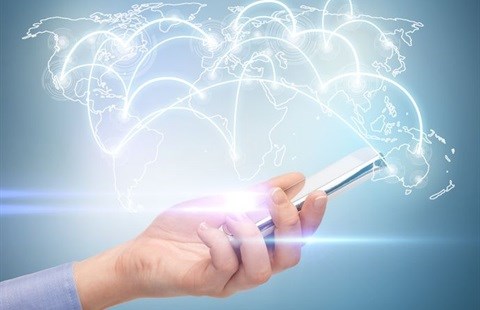Mobile technology: Bridging the African digital divide
Mobile technology is playing a vital role in bridging this gap, easing access to the internet and communications in the developing world, and thus empowering citizens with information at the click of a button.
This week marks the World Telecommunication and Information Society Day (WTISD) - an annual event that raises awareness about the potential of the Internet and Information Communication Technologies (ICTs) while addressing means to bridge the digital divide. The Information Society World Summit urged the UN General Assembly a decade ago to declare 17 May World Information Society Day.
Growth of mobile in Africa
Although a huge gap still exists between the developed and developing world with regards to access to digital technology and mobile penetration, Africa's mobile unique subscriber base is expected to grow by seven percent per year, reaching over half a billion or 49 percent of the population by 2020. Sub-Saharan Africa's unique mobile subscribers were estimated at 329 million by the end of June 2014, representing 38 percent of the region's total population.

According to Internet World Stats, Africa represents almost 10 percent of the world internet usage at 26.5 percent penetration rate while the rest of the world represents a little over 90 percent at 45.2 percent penetration. Africa's internet penetration is also expected to reach 50 percent by 2025 as smartphones hit a forecasted 360 million, increasing significantly from 16 percent and 67 million in 2013. With mobile penetration saturation in the developed world, Africa's adoption of smart phones is expected to double that of the US, according to Mckinsey Consultants.
Unequal access to information coupled with a disproportionate distribution of income makes knowledge a scarce resource for individuals who can afford it, leading to what researchers coined, the "knowledge-gap." The hypothesis states that people of high socio-economic status will acquire information faster than less privileged people, simply because they can afford technology and thus acquire knowledge at a much faster rate.
Several attempts by information technology activists have yielded positive results at bridging both the digital divide and the knowledge gap in the developing world. Initiatives include designing cheap laptops or tablets offered for school children in the Middle East and Africa region. Mobile innovations continue to offer unlimited opportunities for the developing world, overcoming cost barriers. Instead of having a laptop to access the internet, people can become netizens or citizens of the internet with a single mobile handset at a much cheaper cost.
Essential information
Sustainable development would be an attainable ideal in the absence of well-informed citizenry. Access to information in developing countries is essential for survival. At times of crisis such as disease outbreaks, African citizens resort to their mobiles for SMS alerts about vaccinations and prevention control tips. Information is no longer a luxury in today's fast-paced world. Lack of vital information makes less-privileged people more susceptible to disease and life-threatening problems.
Digital technology is revolutionising education. Massively Open Online Courses (MOOC) provide free education up to university level to thousands of internet users across the globe, arming citizens of developing countries with knowledge at the convenience of their mobile devices. The only obstacle to the proliferation of MOOC is digital literacy and access to the internet.
Although the ITU forecasts the number of fixed and mobile internet users to reach 2.9 billion or 40 percent of the world population by the end of 2014, a number of 4.4 billion people or 60 percent will remain unconnected. A conscious effort is needed to bring this portion online to narrow the digital divide and bridge the gap between the information haves and haves-not.

About Sara El-Khalili
Sara El-Khalili is Corporate Communications Manager at TA telecom. She is an independent trainer and consultant in the field of journalism and mass communication. She started her journalism career in the late nineties where she covered political and business news for the Associated Press, Reuters and Cairo Times. She taught media writing and reporting courses for seven years as an Adjunct Faculty member at the American University in Cairo (AUC). She has master's degree in Journalism and Mass Communication from AUC.Related
SA advocates for linguistic equity in AI at G20 8 Apr 2025 #BizTrends 2025: Google's Alex Okosi – Africa, an opportunity more than a challenge 4 Feb 2025 Open for entry: Computer Olympiad Talent Search includes offline option for digitally disadvantaged 4 Feb 2025 Everything minister Malatsi said at #AfricaTechFestival 13 Nov 2024 GSMA report spotlights Africa’s ‘billion strong digital divide’ 12 Nov 2024 SU student heads online learning platform to help bridge digital divide 30 Jul 2024






















